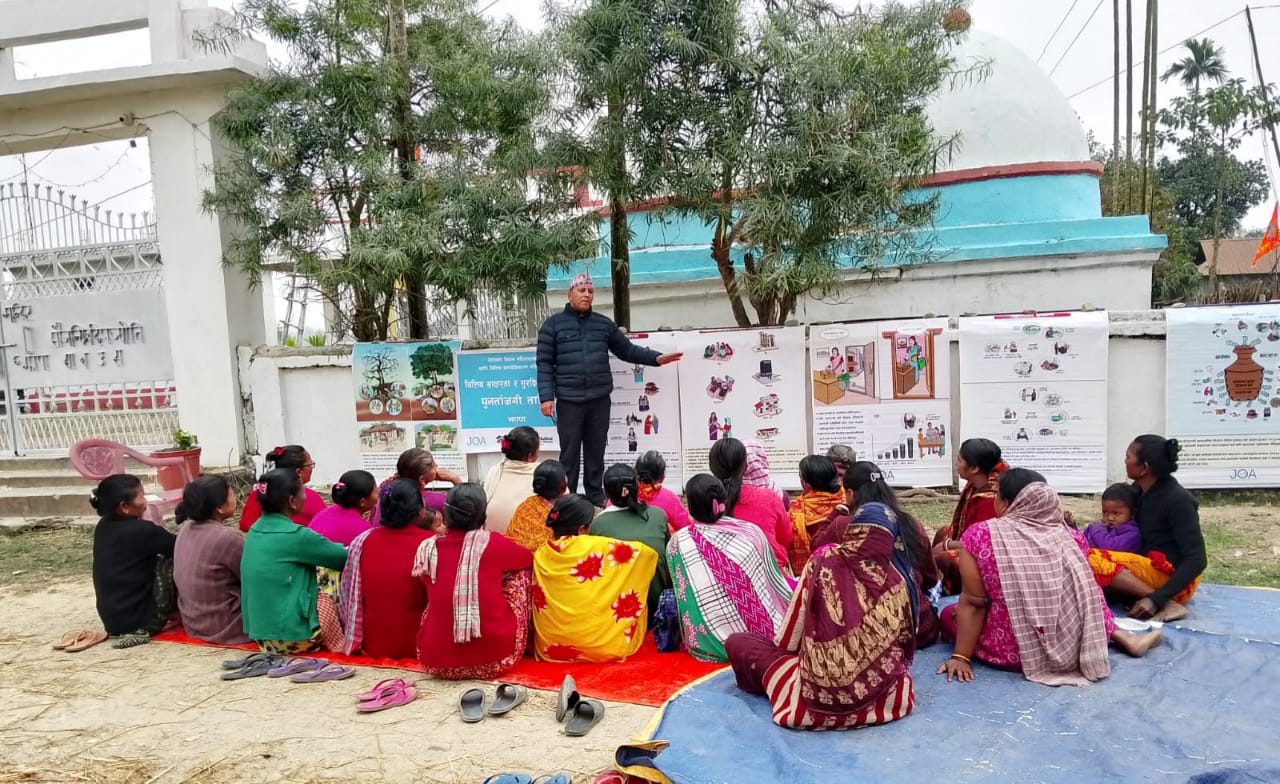Financial Inclusion of Marginalized Women in Nepal- JOA Project

Project Background
Habitat for Humanity Nepal and Sahara Nepal is jointly working in the project “Financial Inclusion of Marginalized Women in Nepal”, in 4 districts of Eastern Nepal namely Jhapa, Morang, Saptari, and Udayapur. 20 Rural/Municipality are selected as working regions for the implementation of Financial literacy-related awareness campaigns and pieces of training for the rural population. It aims to train women on financial literacy and support youth-led awareness campaigns to take messages on safe shelter to members of low-income groups in the four districts and contribute towards building demand for housing loans. Concurrently, it works with MFIs to refine loan products and support the marketing of such loans through communication.
Major Activities
14 days Financial Literacy and Safe shelter Training to community women
Financial Literacy and Safe Shelter Refresher Training after 6 months of FL Class
TOT on Financial Literacy to Community Facilitators
2 days Financial Literacy and Safe shelter Training Package to Community men.
Community Awareness Raising Activities (Announcements, interaction, rallies, video screening, School/ Club collaboration)
Develop marketing strategies for housing microfinance loan.
DFS promotion of MFIs.
Major Achievements
330 financial literacy and safe shelter trainings for women were successfully carried out.
52 community facilitators received TOT on financial literacy.
40 trainings for MFI partners' capacity building was conducted.
Over 20,000 members on boarded to DFS platforms.
According to a post-FLT survey, 34% of households opened new bank accounts as a result of the FL training. 35% borrowed loans from a variety of sources, including 56% from MFIs and 28% from cooperatives. 18% of them start keeping records of their income and expenses, and 12% start using mobile banking. 66% of them maintained a coping budget, whereas 29% of them bought insurance. 7% of them borrowed money from cooperatives and MFIs for improving their homes.
Coordination/Collaboration
Continued coordination with Palika and ward; ward members are supportive in conduction of events and trainings at their respective palikas.
Good and effective coordination with MFIs branch staffs as they are the key informants to make happen the event at their working cluster.
Major Lessons Learned
The introduced game-based sessions in FLT have good results as the participants are found to be interested and occupied.
Local authorities especially ward chairperson and members are supportive and have interest in our FLT sessions.
To learn about participants understanding of FL, follow-up and periodic surveys are needed that helps to improve the program implementation
Need to link skill development activities in coordination with local government as FL classes are 14 days long.
Promoting digital financial service to rural women needs more effort from MFI officials, dedicated staffs are needed in head office for prompt enrolment of clients in digital platform.
Project Detail Brochure
Download and read about the project in details

